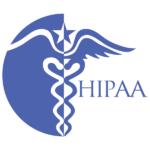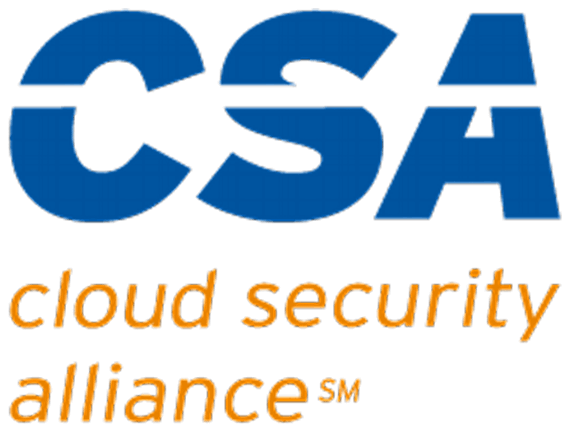Introduction
Every other day, it seems like we hear about another company that has had its computer systems hacked. This can be a massive problem for businesses, resulting in the loss of confidential information, money, and even customer data. If you are concerned about your computer’s security, you need to read this article. We will discuss some tips that will help you protect yourself from hackers.
Why would cybercriminals want to gain access to your systems in the first place?
There are many reasons hackers want to gain access to your computer systems. They may be looking for confidential information such as customer data or financial records. Alternatively, they may be looking to install malware on your system to use it for their own purposes. More recently, cybercriminals have used illegal access to business data to extort or blackmail businesses, a practice known as “ransomware.” The hackers encrypt your data so that you cannot access it and then demand a ransom from you to decrypt it. They may threaten to post sensitive business data on the Internet or supply it to the business’s competitors if the ransom is not paid. They may even threaten to go after the business’s customers with additional blackmail attempts. This can be a very costly problem for businesses, resulting in the loss of essential data, money, and goodwill. It’s estimated that up to 60% of small businesses that suffer a cybersecurity breach will never recover, closing their doors for good within six months.
Regardless of their motives, you must take steps to protect yourself from these criminals.
How can you protect yourself?
Protecting your computers and network against hacking is essential in today’s digital world. Here are some tips to help you avoid getting hacked:
- Secure your computer(s) and/or network with a firewall
- Run antivirus/antispyware software on all computers
- Use strong passwords and never reuse them
- Use multi-factor authentication wherever supported
- Keep your software and operating system up to date
- Install a reputable security suite and configure it properly
- Be careful about what you click on and download
- Shutdown computers when not in use
- Back up your data regularly
Let’s look at each of these measures and review some additional tips to stay safe.
Secure your computer(s) and/or network with a firewall
A firewall is a piece of hardware or software that helps to protect your computer(s) or network from unauthorized access. Firewalls can be used to block incoming traffic from malicious computers, and they can also be used to restrict outgoing traffic so that only authorized users can access specific resources.
There are many different types of firewalls available, and the best one for you will depend on your specific needs. If you are not sure which kind of firewall to choose, you can contact a professional IT company for help. Recent flavors of Windows include a built-in firewall that is enabled by default. You can accept the default configuration or tailor it to best match your environment – this should be your first line of defense against intrusion. macOS also includes a built-in firewall.
The network that serves your office environment and provides Wide-area Network (WAN, usually Internet) connectivity should also be protected with a firewall. Most Internet routers have some built-in security functionality that is preconfigured with standard settings – that should be evaluated for any changes that suit your needs. You should also consider a dedicated security appliance for your office networks, such as a hardware firewall or Unified Threat Management (UTM) device. Companies such as Fortinet, Watchguard, and Sonicwall manufacture these devices.
Run antivirus/antispyware software on all computers
Antivirus and antispyware software help to protect your computer from malware, which is software that is designed to harm your computer or steal information from it. There are many different types of antivirus and antispyware software available, and it is crucial to choose one that is reputable and will work well with your specific computer. Both Windows and macOS come with a built-in virus protection solution, and a range of popular third-party products are available, such as Avast, AVG, and MalwareBytes.
Keeping your antivirus and antispyware software up to date is also essential. New viruses and malware are created all the time, and your software needs to be able to recognize and protect against these new threats. Most antivirus and antispyware software will update itself automatically, but you should always check to ensure that the latest updates have been installed.
Use strong passwords and never reuse them
One of the most important things you can do to protect your computer is to use strong passwords. A strong password is at least eight characters long and includes a mix of uppercase and lowercase letters, numbers, and symbols. It is also important to never reuse passwords. If you use the same password for more than one account, a hacker who gains access to one of your accounts will also have access to all of your other accounts.
There are many different ways to generate and remember strong passwords. One popular method is to use a phrase that is easy for you to remember, but that would be difficult for someone else to guess. For example, you could use “I love my cat” to create the password “Il0v@myc@t”. You can also use a password manager, such as LastPass or Dashlane, to generate and store strong passwords. Check out our article on password managers for more depth on this topic.
Use multi-factor authentication wherever supported
Multi-factor authentication (MFA) is an extra layer of security that requires you to provide more than one set of information to log in to an account. For example, when you use MFA to log in to your email account, you may be required to enter your username and password, and a code sent to your phone. Many MFA-enabled systems work with authenticator mobile apps that generate a unique code for each login session, eliminating the need to send an SMS each time. Microsoft and Google have official authenticator apps, and there are third-party options.
MFA is an effective way to protect your accounts because it makes it more difficult for hackers to gain access. Even if they can obtain your password, they will also need to have your phone to log in. Many popular online services, such as Google, Microsoft, and Facebook, support MFA, and you should always enable MFA whenever it is an option.
Keep your software and operating system up to date
Another important step you can take to protect your computer is to keep your software and operating system up to date. The publishers of operating systems and applications software release updates for their products regularly to fix bugs and security vulnerabilities. It is essential to install these updates as soon as they are available, as hackers will often try to exploit these vulnerabilities as soon as they are made public.
You can usually set your software and operating system to install updates automatically, but you should always check to ensure that the latest updates have been installed. In Windows, you can open the Control Panel and go to System and Security > Windows Update to check for important updates for your OS and drivers. On a Mac, you can open System Preferences and click on Software Update to check on OS updates, and/or open the App Store and click on the Updates tab for software originally installed via the App Store.
Install a reputable security suite and configure it properly
Beyond basic antivirus and firewalls, another step you can take to protect your computer is to install a reputable comprehensive security suite and configure it properly. A security suite is a collection of security tools that work together to protect your computer from malware, viruses, brute force attacks, malicious websites, and other threats. Security suites go beyond basic virus protection and will typically combine the functions of several different products into one.
There are many different security suites available, both free and paid. Popular ones for individual use include Norton 360, McAfee Total Protection, and Kaspersky Internet Security. If you have an entire office to protect, commercial products from Trend Micro and Bitdefender have admin tools to manage deployments and centrally monitor activity.
When choosing a security suite, it is essential to make sure that it is compatible with your operating system and offers the features you need. For example, if you are looking for protection against malicious websites, ensure that the suite you choose includes browser protection. Once you have selected a security suite, configure it properly. This usually involves setting up real-time and scheduled scanning, determining which types of files to scan, and the altering level you want to receive.
Be careful about what you click on and download
One of the easiest ways for hackers to gain access to your computer is by tricking you into clicking on a malicious link in an email or instant message. These links often look like they lead to legitimate websites, but they take you to a fake site designed to steal your information. Hackers will also often send emails that look like they are from a legitimate company, such as your bank, and try to get you to click on a link or download an attachment to steal your information.
Likewise, websites infected with malware, malicious scripts, or other nefarious content can infect your computer if you visit them without taking proper precautions. Sites devoted to gaming, adult content, and distributing pirated or cracked software are frequently “honeypots” designed to infect the computers of unsuspecting visitors via embedded scripts or malicious links.
To avoid these types of attacks, you should always be careful about what you click on and download. If you receive an email or instant message from someone you don’t know, do not click on any links or open any attachments that it contains. If you are unsure about the link’s legitimacy, mouse over it to examine the URL and see if it looks legitimate (i.e., matches a known URL). If you are unsure whether a website is safe to visit, you can use a service like Norton Safe Web or McAfee WebAdvisor to check it before you enter.
Shutdown computers or disconnect from the Internet when not in use
A free and simple way to protect your computer is to power it off or disconnect from the Internet whenever you are not using it. This will prevent hackers from accessing your computer remotely and help protect you from malware designed to run in the background and steal information or resources from your system. If you must leave your computer on and connected to the Internet, enable a firewall and take other security precautions to protect it.
Back up your data regularly
If all else fails and your systems are hacked, one of the most important things you can do to protect yourself is to backup your data regularly. If you are compromised or computer(s) are lost, stolen, or damaged, you will still have a copy of all your important files. There are many different ways to backup your data, including using an external hard drive, a cloud-based storage service, or backing up to a network drive.
Having a backup policy to make backups of important data and store them securely automatically is crucial – backups should not be a haphazard process. Most experts recommend a “3-2-1” storage policy:
- Keep three (redundant) copies of your data – one primary and two backups;
- Store the copies on two different media types – for example, a hard drive and an optical disc;
- Keep one backup offsite – for example, in a safety deposit box or with a friend or family member. This way, if your home or office burns down or is otherwise destroyed, you will still have a copy of your data.
Taking a daily backup is considered essential protection – some businesses opt for several times a day or even hourly, depending upon how quickly their data changes.
With regards to “backup retention” – how long to keep backup copies, a typical backup retention policy might dictate that you keep backups for:
- Daily backups – one week (keep the seven most recent daily backups);
- Weekly backups – one month (e.g., keep the four most recent Sunday backups);
- Monthly backups – six months (e.g., keep the six most recent end-of-month backups);
- Yearly backups – two to five years (e.g., keep the 2 – 5 most recent December 31st backups);
- Ongoing or “forever” backup copies – indefinitely (for things like legal documents and financial records).
Whatever method you choose, be sure to regularly backup your data and keep multiple copies in different locations. This way, if one copy is lost or damaged, you will still have others to fall back on.
Conclusion
In conclusion, following these tips can help you avoid getting your computer hacked. However, no security measure is perfect, and there is always a risk that your computer could be compromised. It is important to keep this in mind and to take steps to protect your data accordingly.
We hope you found this article helpful. Stay safe out there!




